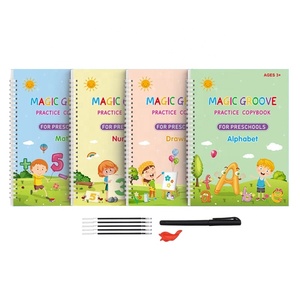Introduction to Tools for Writing Books
In the expansive world of literature, tools for writing books play a pivotal role in transforming ideas into compelling narratives. From budding authors to seasoned writers, these essential instruments not only enhance creativity but also streamline the writing process. Whether you’re drafting a novel, crafting a memoir, or jotting down your thoughts, having the right tools can significantly improve productivity and ease frustration in the writing journey.
Types of Tools for Writing Books
When discussing tools for writing books, it's crucial to recognize the various types that cater to different stages of writing. Here are some categories:
- Writing Software: Programs like Scrivener, Microsoft Word, and Google Docs are designed for drafting texts, organizing notes, and providing templates for various writing formats.
- Note-Taking Apps: Tools such as Evernote and OneNote enable writers to capture ideas on-the-go, sync notes across devices, and organize research material efficiently.
- Editing Tools: Software like Grammarly and ProWritingAid helps in refining grammar, style, and clarity, ensuring that the final manuscript is polished and professional.
- Outlining Tools: Mind mapping applications, such as MindMeister or XMind, assist writers in structuring their thoughts and developing coherent plots before diving into writing.
- Publishing Platforms: For those looking to self-publish, platforms like Amazon Kindle Direct Publishing or IngramSpark are essential tools for navigating the publishing process.
Functional Features of Writing Tools
The functional features of tools for writing books make them indispensable in a writer's toolkit. Understanding these functionalities can help you choose the right tool for your needs:
- Collaboration Features: Many writing tools enable real-time collaboration, allowing multiple authors to work on a manuscript simultaneously, which is ideal for co-authored works.
- Research Integration: Some applications allow users to incorporate research directly into the writing process, pulling in references and quotes easily.
- Goal Setting: Tools like Scrivener offer project management capabilities, where writers can set daily word count targets and track their progress over time.
- Formatting Options: Advanced writing tools provide multiple formatting styles, which are particularly useful for authors submitting works to publishers with specific guidelines.
- Cloud Storage: Most modern writing tools include cloud capabilities, ensuring that your manuscript is safe and accessible from any device, anywhere.
Advantages of Using Effective Writing Tools
Leveraging appropriate tools for writing books boasts numerous advantages that can elevate the writing experience:
- Enhanced Focus: Many writing applications offer distraction-free modes, allowing writers to immerse themselves in their work without interruptions.
- Time-Saving: With integrated features that organize research, automate formatting, and provide editing assistance, writers can save valuable time throughout the writing process.
- Improved Organization: These tools help writers keep their thoughts, characters, and plots organized, which is essential for complex stories with multiple arcs.
- Better Collaboration: When working with other writers or editors, these tools facilitate smooth communication and sharing, leading to a more cohesive final product.
- Accessibility: Many of these tools are available on various platforms, meaning you can write on your computer, tablet, or even smartphone, ensuring your inspiration is never lost.






















































